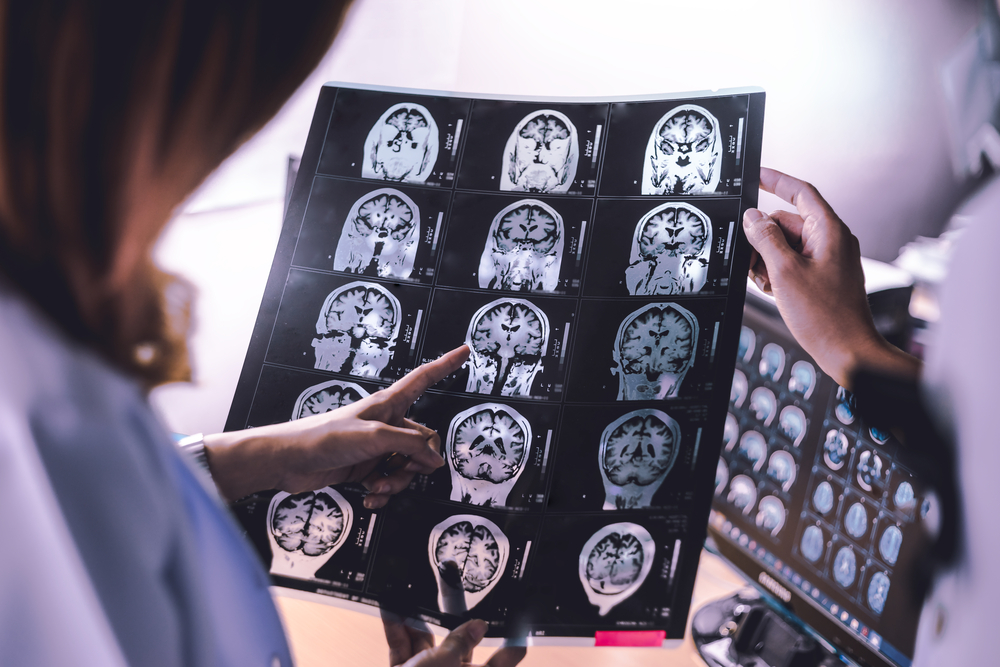Social Cognition Issues Linked to Damage in Specific Brain Region in RRMS Patients, Study Shows
Written by |

Issues with social cognition can occur in relapsing-remitting multiple sclerosis (RRMS) patients even without the presence of cognitive impairment, and are related to damage in a specific brain region known as the amygdala, a study reports.
The study, “Social cognition deficits and the role of amygdala in relapsing remitting multiple sclerosis patients without cognitive impairment,” was published in the journal Multiple Sclerosis and Related Disorders.
Critical for social interaction, social cognition involves facial emotion recognition, empathy, and Theory of Mind — the ability to distinguish mental states of others and oneself. Evidence suggests that individuals with multiple sclerosis have significant deficits in social cognition.
However, it is unclear if social cognition problems can occur in the absence of cognitive impairment in RRMS patients. In addition, the complex neural networks underlying social cognition have not been examined in multiple sclerosis patients.
In healthy individuals, studies have shown a relationship between components of social cognition, such as the Theory of Mind, and complex neural circuits including but not limited to the amygdala — a roughly almond-shaped mass of gray matter that is involved in the processing of emotions.
The Multiple Sclerosis News Today forums are a place to connect with other patients, share tips and talk about the latest research. Join today!
Now, a team led by researchers from the University of Verona in Italy have examined whether social cognition is affected in RRMS patients in the absence of cognitive impairment. The team tried to connect social cognition deficits with underlying brain structures, investigating the role of the amygdala in social cognition of RRMS patients using imaging techniques.
They recruited 31 RRMS patients and 38 healthy individuals matched by age, gender, and education (control group). None of the participants had cognitive impairment. All RRMS patients were taking immunomodulatory therapy.
Participants were tested for three components of social cognition: Theory of Mind, facial emotion recognition, and empathy. They also underwent magnetic resonance imaging (MRI) scans, which the researchers analyzed for global and amygdala cortical thickness and volume as well as the number of lesions.
The researchers found that RRMS patients performed significantly worse on the Theory of Mind test, indicating a poorer ability to “read” people’s emotions. Similarly, the patients scored significantly lower than the control group in facial affect recognition, specifically in the recognition of negative emotions, such as anger and fear, as has been shown in other studies on this patient population.
The team found that lower performances on Theory of Mind and facial emotion recognition tasks were related specifically to bilateral amygdala damage, but not to global brain lesions, as seen through MRI.
“To the best of our knowledge, this is the first study in which it has been shown a correlation between bilateral amygdala cortical lesion volume and deficits in facial affect recognition in a group of RRMS patients, specifically related to anger and fear, adding evidence on the role of bilateral amygdala in recognizing basic emotional states,” the researchers wrote.
Empathy scores were also significantly lower in the RRMS group than in healthy controls. RRMS patients defined themselves as less empathetic and less prone to sharing emotional states of other people and to sympathizing with others’ situations, in agreement with previous studies.
Consistent with what is known about the cortical networks underlying empathy, global cortical lesions were found to be a predictor of empathy scores.
“It could be argued that bilateral amygdala, as a primitive subcortical area and as a fundamental region for the ‘social brain’ that, when impaired in RRMS, lead to social cognition deficits also in the absence of cognitive impairment,” the researchers wrote.
These results showed that social cognition can be affected in RRMS patients even in the absence of cognitive impairment. The researchers proposed assessing social cognition early in the course of multiple sclerosis regardless of the presence of cognitive impairment.


